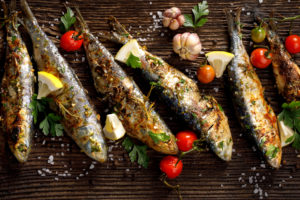 You can get plenty of information from the labels on your favorite foods. You can find out the calories, protein, fat, sugar, fiber, and sodium. But really, how much is it telling you about your overall health?
You can get plenty of information from the labels on your favorite foods. You can find out the calories, protein, fat, sugar, fiber, and sodium. But really, how much is it telling you about your overall health?
Are your favorite healthy foods that good for you?
Advertisement
That’s the question that a group of researchers tried to answer late last year. They sought out to identify how different foods and lifestyles influence inflammation, and how to potentially construct a diet to optimize inflammatory levels in the body.
Inflammation is a major contributor and risk factor for a host of chronic illnesses. It is a marker of high blood sugar, type-2 diabetes, heart disease, and more. Chronic inflammation can also boost the risk for other very serious illnesses.
So, much like there is a glycemic index to assess how sugars in food influence blood sugar levels, the researchers set out to identify an inflammation index. The results were published in The Journal of Nutrition.
An inflammatory index may be useful because it can help provide insight into overall health. As inflammation is so prevalent in such a host of conditions, knowing just how food choices influence inflammatory response could be highly useful.
They came up with their list by looking at 19 food groups and four lifestyle characteristics with data from over 30,000 people. Each shared information about how they ate and lived, while they also underwent blood tests to identify inflammatory markers.
Although the results might not be particularly surprising, some might cause you to raise an eyebrow. The scale offered negative scores, meaning they fight inflammation, whole positive scores create an inflammatory response.
Advertisement
Here’s a hint of what they found:Tomato: -0.78
- Apple/Berries: -0.65
- Poultry: -0.45
- Leafy greens/cruciferous vegetables and dairy: -0.14
- Fish: -0.08
- Added sugar: 0.56
- Processed meat: 0.68
- Refined grains/starchy vegetables: 0.72
Although these numbers may play a slight role in your selections, and you might be more surprised to find that high-fat dairy is less inflammatory than fish, it really doesn’t make too much a difference in general anti-inflammatory diet advice.
To keep inflammation at bay and reduce blood pressure and blood sugar, adopting an anti-inflammatory diet is highly recommended. Examples are the Mediterranean diet, but for many, including more whole fruit, colorful vegetables, and unprocessed meats will suffice.
